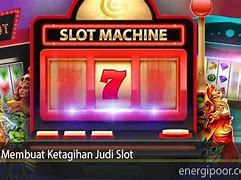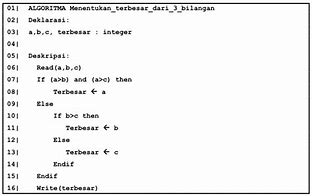Jakarta's deputy governor (2012–2014)
In 2011, Ahok considered running for Jakarta governor as an independent candidate. However, he opted not to run, as he was pessimistic about his chances of receiving 250,000 signatures, a requirement for running as an independent gubernatorial candidate in Jakarta.[26] He then became the running mate of Joko Widodo in the 2012 election. The pair won 1,847,157 (42.6%) votes in the first round, and 2,472,130 (53.82%) in the second round, defeating incumbent governor Fauzi Bowo.[27][28] The ticket was nominated by the Indonesian Democratic Party of Struggle (PDI-P) and the Great Indonesia Movement Party (Gerindra).[29] On 10 September 2014, Ahok left Gerindra because he opposed the party's proposal to scrap direct elections for local leaders.[30]
Presiden Joko Widodo (Jokowi) bersama Menteri PUPR Basuki Hadimuljono dan Mentan Andi Amran mencicipi Mie Gacoan saat berkunjung ke Mataram, Nusa Tenggara Barat (NTB). Jokowi kepedesan saat menyantap mi yang sempat viral tersebut.
Momen itu diabadikan Jokowi lewat vlog yang diambilnya sendiri dan dibagikan di Instagram @jokowi, Rabu (1/5/2024). Dalam vlog itu Jokowi mengajak semua pihak mendukung usaha lokal.
"Menikmati kuliner andalan dan berjumpa masyarakat di Mataram tadi malam. Mari kita dukung pengembangan usaha lokal yang juga meningkatkan perekonomian daerahnya," tulis Jokowi di postingan tersebut dilansir detikNews.
SCROLL TO CONTINUE WITH CONTENT
Warga di outlet Mie Gacoan itu pun ramai dan antusias menyambut kedatangan Jokowi. Tampak Jokowi mengenakan kaus hitam semringah hendak menyantap Mie Gacoan.
"Saya sekarang di Mataram NTB dan ingin mencoba Mie Gacoan," ujar Jokowi.
Saat menyantap mi tersebut, Jokowi mengaku rasanya pedas.
"Makanan sudah datang, mie gacoannya, saya mau coba. Pedes.. pedes sekali," katanya.
Menteri PUPR Basuki juga tak kuata makan mie tersebut. Ia sampai harus menambah kecap ke dalam makanannya.
"Level dua tapi saya kira ini topnya saya, saya makan sampai level dua ini. Tapi sip," ujar Basuki.
Indonesian politician
Basuki Tjahaja Purnama (Chinese: 鐘萬學; pinyin: Zhōng Wànxué, Pha̍k-fa-sṳ: Chûng Van-ho̍k; born 29 June 1966) is an Indonesian businessman, politician, and former governor of Jakarta. He is colloquially known by his Hakka Chinese name, Ahok (Chinese: 阿學). He was the first ethnic Chinese governor of Jakarta and the first non-Austronesian governor of Jarkata and also of the Evangelical faith, following Henk Ngantung, who was the sole Catholic and Austronesian Minahasan governor to hold office from 1964–65.[2][3]
Ahok was a legislator in the Indonesian People's Representative Council (DPR) and Regent of East Belitung.[4] He was elected to the House of Representatives for the 2009–2014 term but resigned in 2012 to run for the deputy governorship of Jakarta, to which he was elected. In November 2014, he became governor of Jakarta, as his predecessor Joko Widodo had become president.[5] Ahead of the 2017 Jakarta gubernatorial election, Ahok's political rivals aligned themselves with Islamic extremists to exploit religious and racial intolerance, resulting in Ahok being accused of blasphemy in October 2016.[6][7] He then lost the election to former Education Minister Anies Baswedan and was imprisoned for blasphemy.[8][9][10]
Parliamentary career (2009–2012)
In 2009, Ahok was elected to the DPR as a member of Golkar. He was elected with 119,232 votes,[23] and was assigned to the Second Commission.[24] In 2011, he generated controversy in a visit to his local constituency, during which he was recorded by the local media condemning local tin mining businesses for causing environmental damage. The comment was regarded as an insult by a local youth NGO, who reported him to the House Ethics Committee.[25]
Early involvement with politics
Ahok entered politics in his home region of Belitung. He contested the 2005 East Belitung regent election with Khairul Effendi as his running mate and was elected with 37.13% of the vote. He was hopeful Indonesia was breaking with its long and often violent history of prejudice and resentment. He is nicknamed "The Father" and "The Law" for his firm stance against corruption.[18] Ahok confronted vital issues related to traffic congestion, labour, corruption and bureaucracy. He mediated a minimum wage increase, proposed incentives for street vendors to move to designated markets in order to reduce congestion, migrated poor villagers to new flats, introduced surprise inspections of government offices, and proposed installing CCTVs to improve accountability.[19]
Bangka-Belitung governor election
Ahok resigned from his position as East Belitung regent on 11 December 2006 in order to run in the 2007 Bangka-Belitung gubernatorial election. He later credited former Indonesian president Abdurrahman Wahid, for convincing him to run for public office.[20] Wahid supported Ahok's candidacy[21] and praised his healthcare reforms.[citation needed] However, Ahok was defeated by Eko Maulana Ali.
In 2008, Ahok wrote a biography titled Merubah Indonesia (Reforming Indonesia).[22]
Awards and achievements
Family and personal life
Basuki Tjahaja Purnama was born to ethnic Chinese parents on 29 June 1966 and grew up in Manggar, East Belitung. He is the first son of Buniarti Ningsih and the late Indra Tjahaja Purnama.[11] He has three siblings: Basuri Tjahaja Purnama, Fifi Lety, and Harry Basuki.
Ahok firstly married Veronica Tan, a fellow ethnic Chinese of Teochew ancestry hailing from Medan, on 6 September 1997 and the couple had three children, Nicolas Sean, Natania, and Daud Albeneer.[12][13] They divorced in 2018, with Ahok gaining custody of the two younger children.[14] In 2019, Ahok married Puput Nastiti Devi, a police officer who previously served as the aide of his ex-wife,[15] and the couple has two children: Yosafat Abimanyu Purnama[16] and Sarah Eliana Purnama.[17]
Ahok attended Trisakti University, majoring in mineral resources and technology. He graduated with a bachelor of science degree in geological engineering in 1989 and returned to his hometown in Belitung to build a company that dealt in mining contracts.
After two years of working in the company, he decided to pursue a master's degree in financial management at Prasetiya Mulya Business School in Jakarta. He graduated with a Master of Business Administration.[4]
Governorship (2014–2017)
When Joko Widodo took a temporary leave from his post as Jakarta governor to campaign for the presidency, Ahok became acting Governor of Jakarta from 1 June to 22 July 2014.[31] Following Jokowi's victory, he succeeded him as governor and was sworn into office on 18 November 2014.[5]
In October 2015, the State Audit Board (BPK) commenced an investigation into the city's procurement of 3.7 hectares of land adjacent to Sumber Waras Hospital in West Jakarta for a cardiac and cancer center. The city administration bought the land in 2014 for Rp775.69 billion, but BPK subsequently said the land should have cost Rp564.35 billion, so the purchase had caused a state loss of Rp191 billion.[32][33] The Corruption Eradication Commission questioned Ahok over the case in 2016 and cleared him of any wrongdoing.[34][35] Anti-corruption activist Boyamin Saiman claimed he had evidence of corruption and demanded Ahok be held accountable.[33] Corruption allegations were also made over an allegedly fallacious land purchase made by the city administration in Cengkareng, West Jakarta, on 13 November 2015,[36] with a marked-up price causing an estimated state loss of Rp600 billion.[37][38] In December 2020, South Jakarta District Court heard a pre-trial hearing over the Cengkareng land procurement case.[39]
Ahok initially had declared to run for the 2017 Jakarta gubernatorial election as an independent candidate with Teman Ahok (Friends of Ahok), a group of volunteers responsible for collecting over one million Resident Identity Cards, representing supporters required by Indonesian law to be eligible to run on an independent ticket.[40] Due to a new state regulation that tightened the requirements for independent candidates, Ahok ran on the party tickets of three political parties, who previously endorsed him earlier in 2016.[41][42] They were Golkar, the People's Conscience Party (Hanura), and the Nasdem Party.[43] On 20 September 2016, the PDI-P declared its support for Ahok.[44]
In the first round of voting on 15 February 2017, Ahok entered into the second-round between two candidates, having secured approximately 43% of the vote, ahead of Anies Baswedan with 40%, and well ahead of Agus Yudhoyono with 17%.[45] Quick counts for the 19 April runoff indicated that Anies Baswedan was elected as governor; Ahok conceded defeat hours after the polls closed. The official results of the runoff were published by General Elections Commissions (KPU) in May, and Anies Baswedan was elected as the new governor of Jakarta.[46][47]
As a member of a minority ethnic group, Ahok has become the subject of occasional racist comments. During the campaign, he was regularly targeted by ultra-conservatives and supporters of rival candidates for being of Chinese descent. Furthermore, his "double minority" background, being both Christian and of Chinese descent, has made him the target of the hardline Islamic Defenders Front (Front Pembela Islam, FPI). The group called for a revision of a Jakarta constitution to remove some of the governor's responsibilities for government-affiliated Islamic organisations.[citation needed] In 2016, Indonesian Army General Suryo Prabowo commented that Ahok should "know his place lest the Indonesian Chinese face the consequences of his action". This controversial comment was considered to hearken back to previous violence against Chinese Indonesians.[48]
On 27 September 2016, while introducing a government project to citizens of the Thousand Islands, Ahok said some citizens would not vote for him because they were being "threatened and deceived" by those using the verse Al-Ma'ida 51 of the Qur'an and variations of it.[49][50][b] The provincial government of Jakarta uploaded the video recording to YouTube in a channel which often featured Ahok's activities.[51] The video was later edited by a university lecturer, Buni Yani, and one word was omitted from that video, creating a misinterpretation of Ahok's statement. The video went viral, with some citizens considering it an insult to the Quran.[49] Ahok received threats of lynching and was widely criticised in social media such as Facebook and Twitter. Several Change.org petitions were filed, initiated by both his supporters and critics, garnering tens of thousands of signatures.[52][51][53][54]
Some groups, such as the FPI, or the local chapter of the Indonesian Ulema Council, reported Ahok to the police, accusing him of having violated Indonesia's blasphemy law.[55] On 10 October 2016, Ahok publicly apologised to those he offended with his statement, stating that it was not his intention to do so and that some of his policies had benefited Muslims, such as granting permits for Islamic schools, providing Jakarta Smart Cards (KJP) to the students, and building a mosque in the City Hall complex. He also pointed out that during his Thousand Islands speech, the residents were not insulted, and even amused during his recitation.[56]
On 9 May 2017, Ahok was sentenced to two years in prison by North Jakarta District Court after being found guilty of blasphemy and inciting violence. The panel of judges rejected his defence that he referred to a Quranic verse to highlight political discrimination.[57][58][59][60] Based on the court hearing,[61] the panel of judges said that his Thousand Islands speech[62] contained elements of blasphemy. The chief judge maintained that Ahok's statement considered the Al-Maidah verse as a tool to deceive or a source of lies. He said the verse is part of the Quran, and that anyone who quotes it should not have any intent of deception. The judges took into consideration a book Ahok had written in 2008 titled Changing Indonesia. His book was judged as proof that he understood the verse in question. They determined the word aulia ("friends and protectors", or "allies") in the verse could be defined as a leader, thus declaring that Ahok's remarks to be degrading and insulting to the Quran. They also agreed with expert witnesses in the trial that Ahok's remarks were a blasphemous offence.[61]
The verdict was met with scrutiny, condemnation and heavy criticism by many Indonesians[63][64] and observers in the international community, in a case widely seen as a test of religious tolerance and free speech. Many said the verdict was politically driven, retaliatory in nature, and the judges had succumbed to pressure from extremist Islamic groups, disgruntled corrupt business groups, and politicians and officials who were previously criticised by the Ahok administration. Several civil society groups protested his imprisonment, including Amnesty International. Renowned music composer and conductor Addie MS conducted a singing protest in front of the Balai Kota (city hall).[65] Candle-lit vigils were held in various cities. Many observers and individuals both inside and outside of Indonesia have also petitioned the Indonesian government to amend the blasphemy law on the basis that it is discriminatory and targets minorities.[66] The promotion of three judges from the panel a few days after the verdict also raised suspicions and spurred criticism from many Indonesians.[67]
As a result of his imprisonment, Ahok was unable to finish his term as governor and was replaced by his deputy, Djarot Saiful Hidayat, who served until the administration completed its term in October 2017.[68] Ahok initially wished to appeal his sentence but withdrew his appeal on 22 May 2017.[69][70] In an unusual move, the prosecutors filed an appeal against the verdict, arguing the sentence was much heavier than the 1-year imprisonment they had requested. In February 2018, he filed a case review request to the Supreme Court, with his lawyers citing a conviction for tampering with the video footage which was used as evidence against him.[71] On 26 March, the Supreme Court rejected his appeal.[72]
Before his arrest, Ahok had said that one day he wanted to be president of Indonesia.[73][74] Although parole was possible in August 2018, Ahok stated that he would serve his entire sentence before leaving prison. In 2017, Foreign Policy included Ahok in its list of Global Thinkers 2017 "for standing up to Indonesia's creeping fundamentalism."[75]
He was released on 24 January 2019 due to remissions granted at Indonesian Independence Day and Christmas.[76][77] Soon afterwards, he joined the PDI-P.[78] He has requested to be called as 'BTP', rather than 'Ahok' by which he is more well known.[15]
In 2019, Ahok stated that he "could no longer become a government official".[79] During Jokowi's second term of presidency, Ahok was appointed as the president commissioner of the state-owned oil and gas firm Pertamina.[80] By February 2020, the 212 Movement (the same group which protested his alleged blasphemy) had protested for Ahok to be removed from Pertamina.[81]
Ahok has been named as a potential candidate by polling agencies and political observers in the 2024 Jakarta gubernatorial election.[82][83][84] Although he would be ineligible to run for President or to be appointed as a government minister due to his sentencing, he is allowed to run as a regional leader provided that a public announcement is given on his prior imprisonment.[85] On 2 February 2024, he resigned from Pertamina in order to campaign for Ganjar Pranowo in Ganjar's 2024 presidential campaign.[86]
Evictions of squatters
Human rights groups and academics criticized Ahok's forced evictions of Jakarta's urban poor 'kampung' residents from areas zoned for redevelopment to reduce floods and traffic and create green space. Ahok said the residents were illegally squatting on government-owned land and would be moved to newly built public housing.[109][110][111][112] Jakarta Legal Aid Foundation noted at least 16,000 urban poor families had been displaced in two years during his administration.[113] There were 193 forced evictions alone in 2016, compared to 113 in 2015.[114] Human rights groups said the evictions were not conducted under the United Nations Economic and Social Council (ECOSOC) convention, which Indonesia ratified in 2005.[115] One of the conditions of the covenant requires a dialogue before eviction and compensation for any damaged property. Ahok was criticized for deploying police and military personnel during evictions that were part of shutting down and redeveloping a brothel complex.[116][117]
Ahok said his policies only evicted illegal squatters in order to uphold the rule of law. Human rights groups argued that under Indonesian land policy, the so-called illegal squatters should have received land certificates for having lived there for more than 30 years. Ahok relocated the evicted people to privately-funded public housing, but the relocations drew criticism for not meeting basic living standards and having a cost that jumped from the equivalent of about $10 to $20 a month to $70 to $100.[118] Ahok was also accused of employing double standards in the evictions. Rujak Center for Urban Studies researcher Dian Tri Irawaty noted that the evictions did not apply to commercial areas and elite neighbourhoods in Jakarta. She cited the Taman Anggrek mall in West Jakarta, the neighbourhoods and commercial areas in Kelapa Gading and Pluit in North Jakarta, which were also built on water catchment areas.[119] Ian Wilson of Murdoch University argued that Ahok's policies that affected Jakarta's urban poor were overshadowed by his status as an ethnic and religious minority, especially since at the same time he was accused of blasphemy.[120] Many lower and middle-class citizens felt he had ignored public aspirations and caused hundreds of residents to lose their homes.[121]
Ahok countered that he had a different concept of human rights, saying, "I would kill 2,000 people in front of you to save 10 million."[122] The leader of human rights group KontraS, Haris Azhar, said Ahok's anti-corruption image was "nothing but a publicity gimmick" for his lack of awareness in human rights.[111]
Deskripsi : Buku ini menceritakan tentang karakteristik kesamaan kepemimpinan beda zaman antara Presiden Sukarno dan Presiden Joko Widodo. Soekarno dikenal sebagai Bapak Proklamator Republik Indonesia dan Presiden Pertama Negara Kesatuan Republik Indonesia periode 1945—1967. Ir. H. Joko Widodo adalah Presiden ke-7 Republik Indonesia yang mulai menjabat sejak 20 Oktober 2014. Kesamaan diantara keduanya adalah sama sama menunjukkan gaya pemimpin besar yang dekat dengan rakyat, turun ke sawah tanpa canggung. Disisi lain juga seorang pemimpin yang dicintai rakyat. Sejarah mengulang dirinya sendiri. Eddi Elison, penulis senior yang merasakan langsung kepemimpinan tujuh Presiden Republik Indonesia dan berinteraksi dengan mereka semua, melihat dan merasakan fenomena pengulangan ini dalam sosok Soekarno dan Joko Widodo. Presiden pertama dan ke-7 Indonesia ini dilihatnya punya banyak kemiripan; mulai dari latar belakang keluarga, perilaku, gaya hidup, prinsip, visi, dan gaya kepemimpinan. Hanya saja penerapannya sedikit berbeda, sebab Bung Karno dan Jokowi hidup di dua masa yang iklim sosial-politik-ekonominya jauh berbeda. Kemiripan-kemiripan itu disajikan dengan tulisan bergaya ringan, tapi komplit dengan data dan observasi empiris. Seolah kita diajak melihat ada "dua pemimpin kembar" yang mengemban tanggung jawab di zaman yang berbeda. Selamat membaca! Informasi lainnya : Judul : Buku Bung Karno & Jokowi Deskripsi fisik : 150 halaman Weight : 0.25 kg ISBN : 9786027926455 Pengarang : Eddi Elison Penerbitan :Tangerang : Ilman Real, 2018 Bahasa : Indonesia Bentuk Karya : Non Fiksi Status : Aktif




